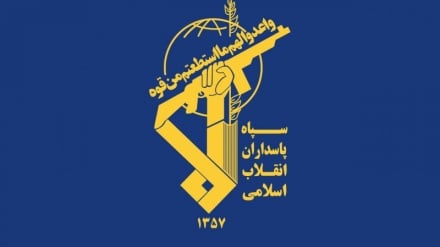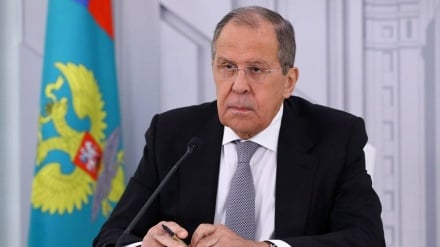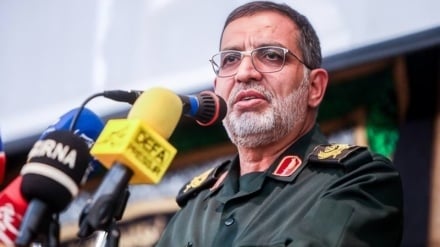Iran's National Nuclear Technology Day
Iran's access to uranium enrichment technology, and launch of a complete uranium enrichment chain in Natanz, was announced on April 9, 2006.
Upon the publication of this report, and with the approval of the High Council for Cultural Revolution, and as a sign of gratitude toward the honorable efforts of young Iranian scientists; April 9, corresponding to the 20th of the month of Farvardin in the Iranian solar calendar year, has been named as the National Nuclear Technology Day.
In the light of this success, Iran was enlisted among countries, which have mastered the uranium enrichment technology.
According to Nuclear Non-Proliferation Treaty, access to peaceful nuclear knowhow is the legal right of any country which has joined and is committed toward the Nuclear Non-Proliferation Treaty (NPT).
Usage of peaceful nuclear technology for achievement of sustainable development goals has currently turned into a necessity. Nuclear technology is defined as the capacity to transform natural uranium into enriched uranium which maintains a huge amount of energy. Currently, around ten countries in the world maintain this knowhow.
Nuclear technology maintains many functions. In a general classification, nuclear energy applications fall into two military and non-military groups. Advancement in peaceful nuclear technology leads to progress in the scientific courses related to this field.
One of the cases of usage of nuclear sciences is in generation of electricity via atomic power stations. Given the finite nature of fossil sources and the growing trend of national social and economic development, usage of nuclear energy for generation of electricity is a must, and construction of atomic power stations has been taken into consideration in Islamic Republic of Iran.
Nuclear technology maintains an inseparable bond with the science of medicine. Within advanced industrial countries, nuclear technology is used in the domain of medical sciences. In addition to usage of atomic energy in X Ray and its application in radiography equipment, nuclear technology is also used in treatment of refractory ailments such as cancer.
Nuclear technology is also applied for identification of underground water sources, guidance of ground and underground water currents, discovery and control of leakage and safety of dams. Atomic energy is also applied to freshen saltwater.
Nuclear energy maintains numerous applications in the domains of agriculture and food industry such as control and elimination of insects, diagnosis and treatment of livestock ailments, livestock reproduction, livestock fodder, health and safety of livestock products and food, and enhancement of the duration of preservation of agricultural products.
Iran, like many other countries, is not just a sole importer of science and technology. Islamic Iran relies on its domestic capacity, given that knowledge is indigenized in Iran and maintains a powerful infrastructure.
Access to nuclear knowhow has always been an aspiration for many countries. Today, Islamic Republic of Iran has been enlisted among countries which have mastered nuclear technology. Iran has embarked upon major peaceful nuclear projects and peaceful nuclear cooperation worldwide. Meanwhile, the Fatwa issued by the Leader of Islamic Revolution on religious prohibition of production, development, and usage of nuclear weapons and weapons of mass destruction has foiled many of the ominous plots of enemies and has unfolded a new horizon in the global arena.
Thanks to efforts made in the domain of peaceful nuclear technology; export of medicines, produced based on nuclear knowhow, to countries such as India, Pakistan, Egypt, and Lebanon, has materialized.
Currently, Iran's contribution to development of modern technologies such as Nanotechnology, renewable energies, aerospace, microelectronics, and stem cells, has significantly enhanced.
Despite of the presence of huge deposits of oil and natural gas across the country; the Islamic Republic of Iran's policy is to shift from an economy which relies on natural resources, to an economy which is founded on efficiency and innovation.
In order to materialize the set goals, and to develop in the domain of nuclear energy for peaceful purposes, Islamic Republic of Iran has established a research center, while the thinkers and researchers in different realms can carry out studies in these scientific fields.
The spokesman for Iran's Atomic Energy Organization, Behrouz Kamalvandi, has pointed out in order to produce energy and to freshen water; development of small power stations is another priority of this organization.
According to Kamalvandi, Iran's Atomic Energy Organization is currently planning to use heavy water as a raw material for other products.
He also reported on the beginning of construction of a highly advanced nuclear hospital in the Province of Alborz in northern Iran, in the new year.
According to the Head of Iran's Atomic Energy Organization, Ali Akbar Salehi, this organization has also maintained plans in regard to shortage of water and drought, and to this end, experts managed to build a device which transforms air humidity into water with the least amount of energy.
Based on the Nuclear Non-Proliferation Treaty, there are three key topics which should be taken into consideration and should be enacted within the framework of the duties of International Atomic Energy Agency (IAEA). First is the global nuclear disarmament. Secondly, there should be nuclear non-proliferation. Unfortunately, IAEA has not been successful in these two tasks. Currently, nuclear weapons have not been dismantled worldwide, while the US and a number of other nuclear-armed states have produced a new generation of atomic weapons. Meanwhile, the third topic within the framework of Nuclear Non-Proliferation Treaty is emphasis upon IAEA assistance in promotion of usage of nuclear energy for peaceful purposes. In this domain, IAEA has also acted selectively and based on political goals.
Unfortunately, the same regimes which agreed upon the Nuclear Non-Proliferation Treaty to prevent the proliferation of atomic weapons, have currently allocated billions of dollars for production of a new generation of atomic weapons.
Given the ample benefits and applications of nuclear energy for peaceful purposes, many IAEA member states, especially developing countries seek the assistance of IAEA in plans related to peaceful usage of nuclear energy.
After the victory of Iran's Islamic Revolution, illegal sanctions have always been imposed on Islamic Iran. However, Iranian scientists have shown that they can make resounding achievements despite these sanctions. Mastery of nuclear knowhow for peaceful purposes has been one of the magnificent accomplishments of Iranian scientists.
MR/ME


